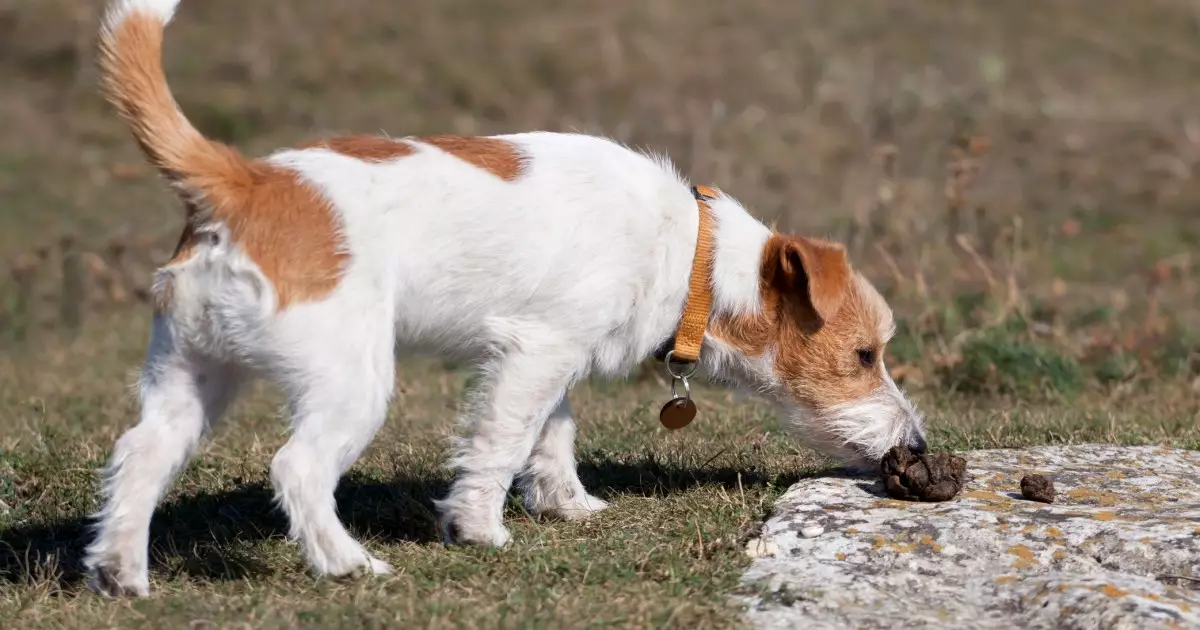It can be shocking and disconcerting for pet owners to discover that their beloved dogs have taken up the habit of eating feces, a behavior scientifically known as coprophagia. While this phenomenon can turn stomachs, it’s essential to understand that this behavior is quite common among dogs and is often rooted in instinctual or learned behaviors. The motivations behind this practice can vary significantly, ranging from the biological to the behavioral.
A leading explanation for coprophagia is the dog’s extraordinary sense of smell, which is far superior to that of humans. Research conducted by canine cognition specialists suggests that this behavior may serve as a means for dogs to acquire valuable information about their environment. Dogs possess a specialized sensory organ called the vomeronasal organ, which allows them to analyze chemical signals and pheromones present in feces. By ingesting feces, dogs can essentially “gather intel” about the species, diet, and health of the animal that produced it—akin to a biological form of browsing the internet.
In the wild, canine mothers engage in this behavior as a method to keep their dens clean and avoid attracting predators. This ancestral instinct for hygiene often carries over to domesticated dogs. In multi-dog households, the dynamics of social hierarchies can also play a role, with subordinate dogs eating the droppings of more dominant dogs. This act, while seemingly distasteful, can be part of their instinctive efforts to maintain a tidy living space and avoid potential threats.
The consequences of training methods can inadvertently contribute to coprophagia. When dogs are reprimanded for messes indoors, they may associate their feces with punishment. This creates a detrimental loop where the dog eats its own feces as a means of erasing evidence of its mistake. Such punitive methods are ineffective and can foster anxiety, leading to further undesirable behaviors.
Puppies, in particular, exhibit coprophagia as they explore their surroundings. For young dogs, this behavior is often a way to learn about their world, akin to how they would investigate toys or other objects. Furthermore, the texture of feces can sometimes mimic that of their mother’s pre-masticated food, leading to confusion over what is edible.
Sometimes, the cause of coprophagia can be traced back to nutritional imbalances. Dogs fed modern diets high in carbohydrates may not absorb all the nutrients due to insufficient digestive enzymes. In these cases, consuming fecal matter allows them to reclaim some of the undigested nutrients they missed. Conditions such as a lack of vitamin B or excessive feeding can exacerbate this behavior. Interestingly, dogs are often attracted to cat feces, which can be tempting since cat food is richer in proteins that dogs crave.
Health issues also play a critical role in this behavior. Certain gastrointestinal problems, infections, or parasites can impede a dog’s ability to fully digest its food. These medical concerns can manifest as appetite changes and lead to scavenging behaviors, including coprophagia.
Isolation and boredom can significantly contribute to coprophagia as well. Dogs are social creatures requiring stimulation, both mental and physical. A lack of engagement, attention, or exercise can lead to problematic habits as dogs attempt to elicit reactions from their owners—positive or negative. In extreme cases, neglect may lead to a dog’s desperate search for nutrients, prompting them to consume feces as a last resort.
If your dog indulges in coprophagia, the first course of action should be a visit to the veterinarian. This assessment can rule out any underlying medical conditions that may need addressing. Additionally, diet adjustments might be necessary to ensure that your dog receives adequate nutrition without the urge to scavenge.
Implementation of effective training techniques is crucial. Rather than punishment, enforcing positive reinforcement can help eliminate this unwanted behavior. Ensuring your dog has sufficient physical exercise and mental stimulation through play, training, and interactive toys can reduce boredom and nurture a healthy lifestyle.
While coprophagia can be an alarming behavior for many dog owners, understanding its underlying causes can pave the way for more effective management strategies. Addressing the behavior holistically—considering biological tendencies, nutritional needs, and behavioral aspects—can help foster a healthier environment for your canine companion.

